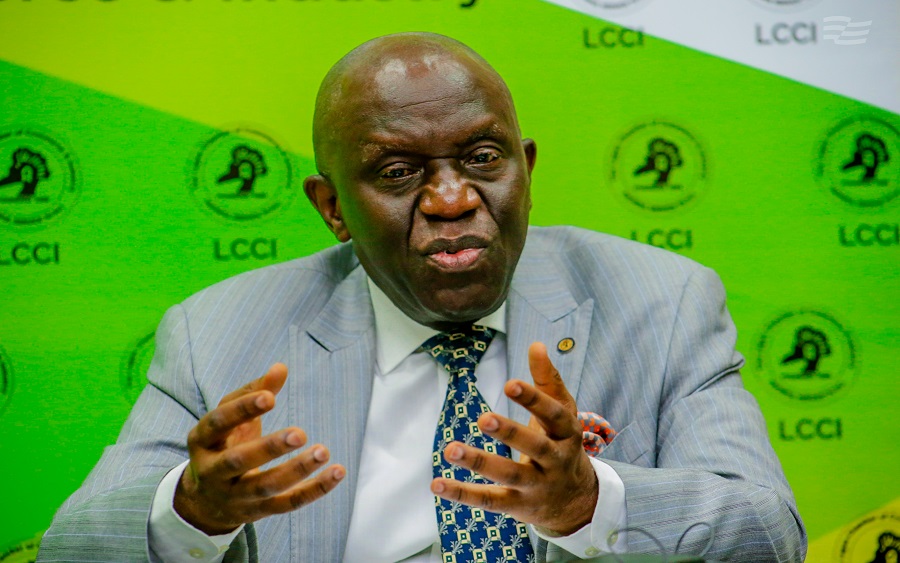Nigeria’s inflationary trend may move higher in the coming months if the nation continues to close its borders to its West African countries. This is according to the outgoing President of LCCI, Babatunde Ruwase.
He projected that the current 11.25% which was announced by the National Bureau of Statistics at the end of September 2019 may move higher in time to come, Punch reports.
Ruwase who said this at the 131 annual general meeting of the body, shortly before he handed over to a new president, Mrs Toki Mabogunje said that he naira had been relatively stable against the US dollar, which was largely sustained by the Central Bank of Nigeria’s intervention in the currency market, however, said that the continued injection of liquidity into the foreign exchange market to ensure the stability of the local currency was not sustainable.
He dwelt on the fear of global oil prices crashing which he said might weaken the CBN’s ability to defend the naira.
“Inflation will most likely trend higher in coming months considering continued shutdown of the land borders, implementation of the new minimum wage, proposed a hike in Value Added Tax rate, festive-related consumer spending and recent flooding incidents which may affect harvesting of food crops.
[READ MORE: Border Closure: Presidential task force inspects Nigeria-Niger Border]
“Increasing inflation may further worsen the poverty status of many and this calls for concern,” Ruwase said.
More details: Speaking further, Ruwase went on to praise the administration of President Muhammadu Buhari on his pro-investment initiative, Presidential Enabling Business Environment Council, and other Executive Orders which he said had moved Nigeria 15 places up the ladder in the 2020 World Bank’s Ease of Doing Business report to 131st position from 146th last year.
However, he stated that there was still a lot the Federal Government needs to do in terms of fostering an environment where small businesses could do well. He emphasized the fact that sound and result-oriented business regulations were critical to private sector development.
The President added that to achieve this feat, it was imperative that the Federal Government tackles regulatory bottlenecks by some of its agencies which were hurting businesses. Also, areas like insecurity and infrastructure deficit such as power and roads would need to be addressed.











